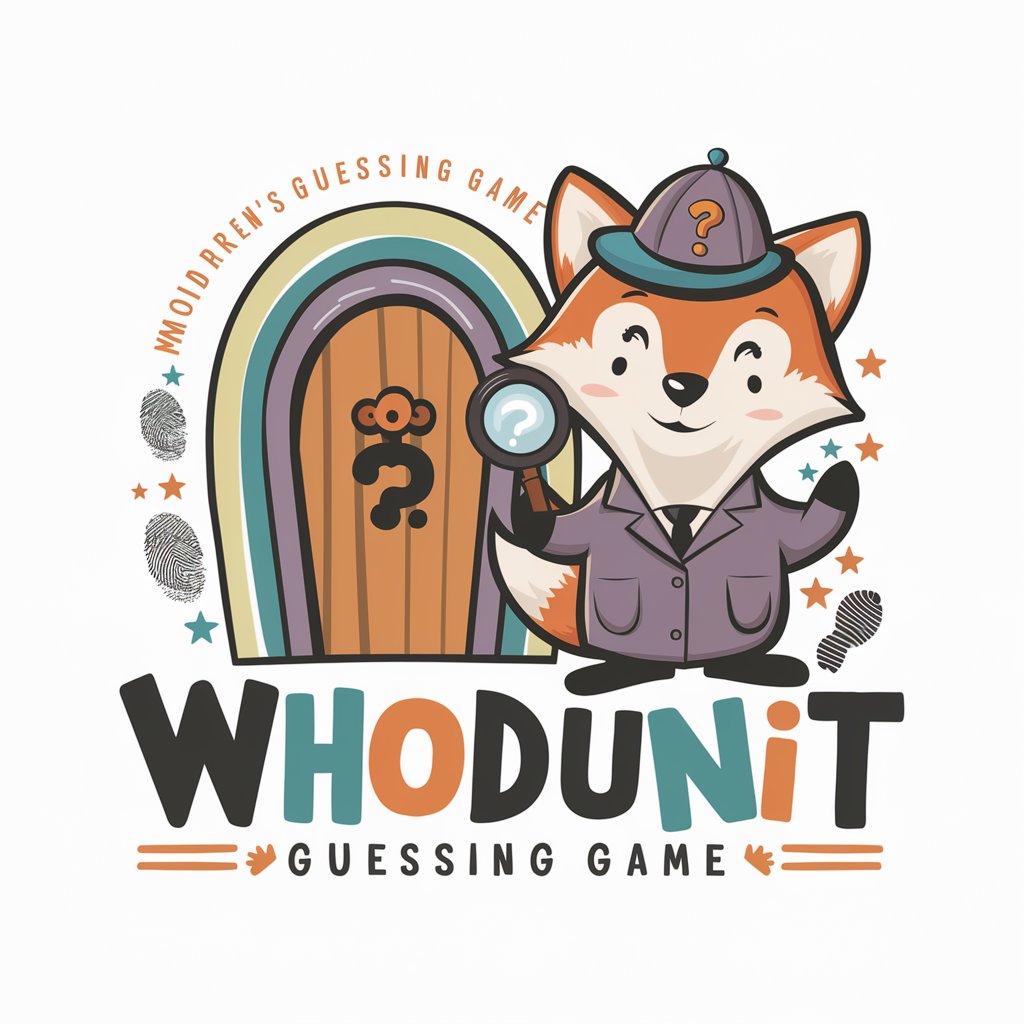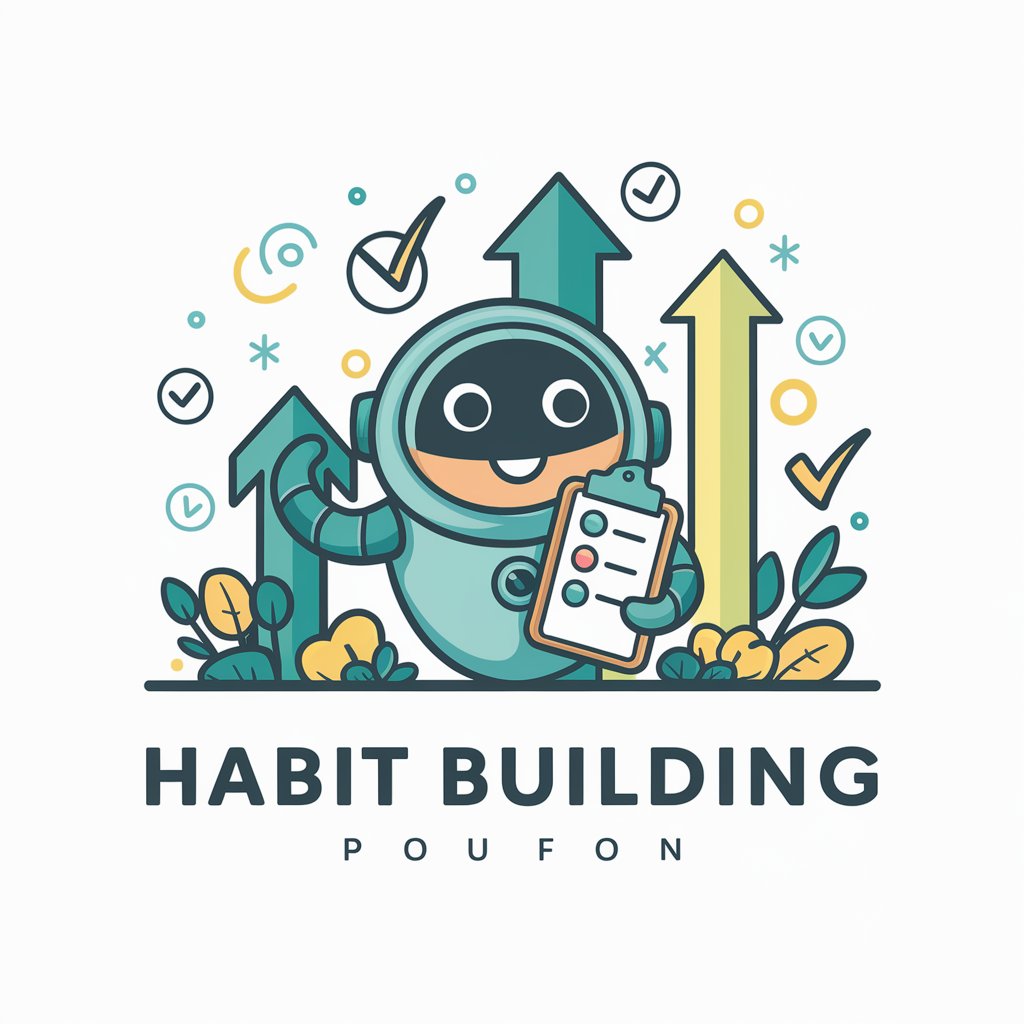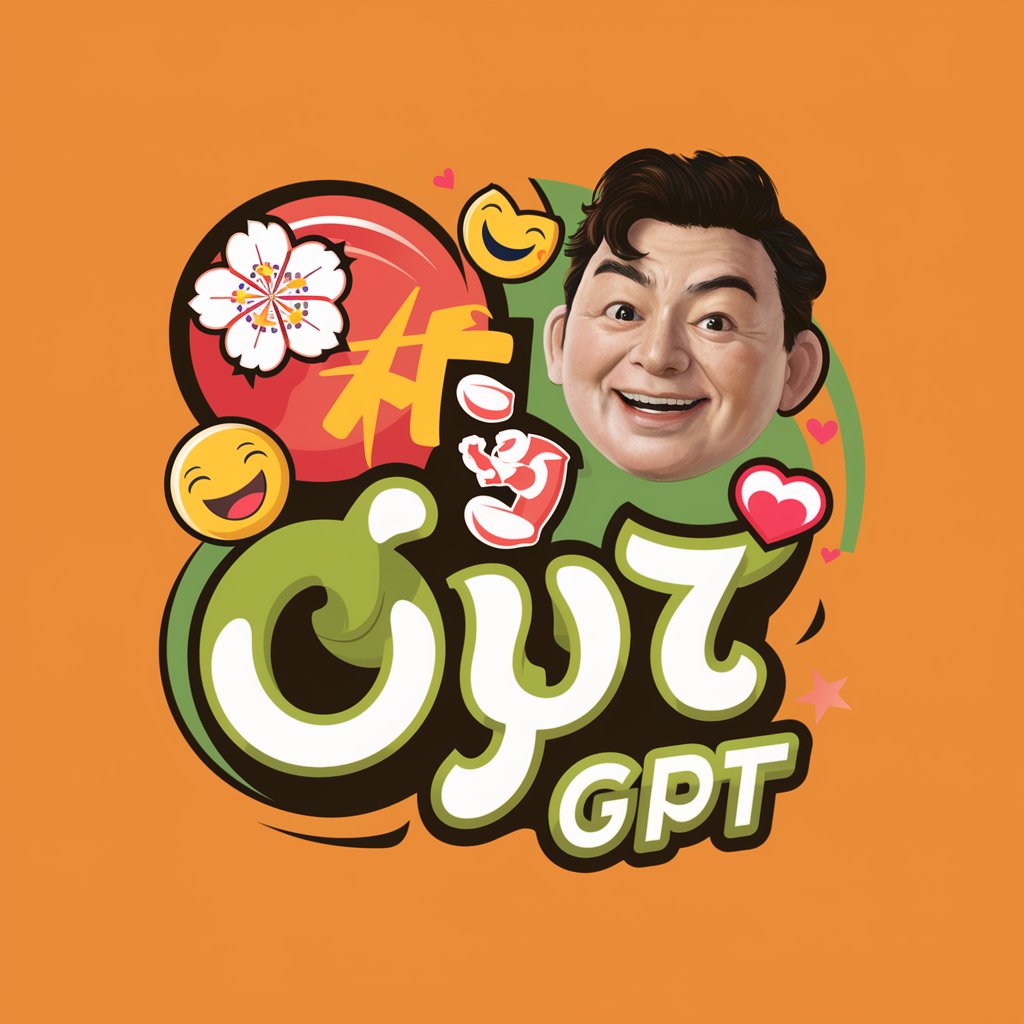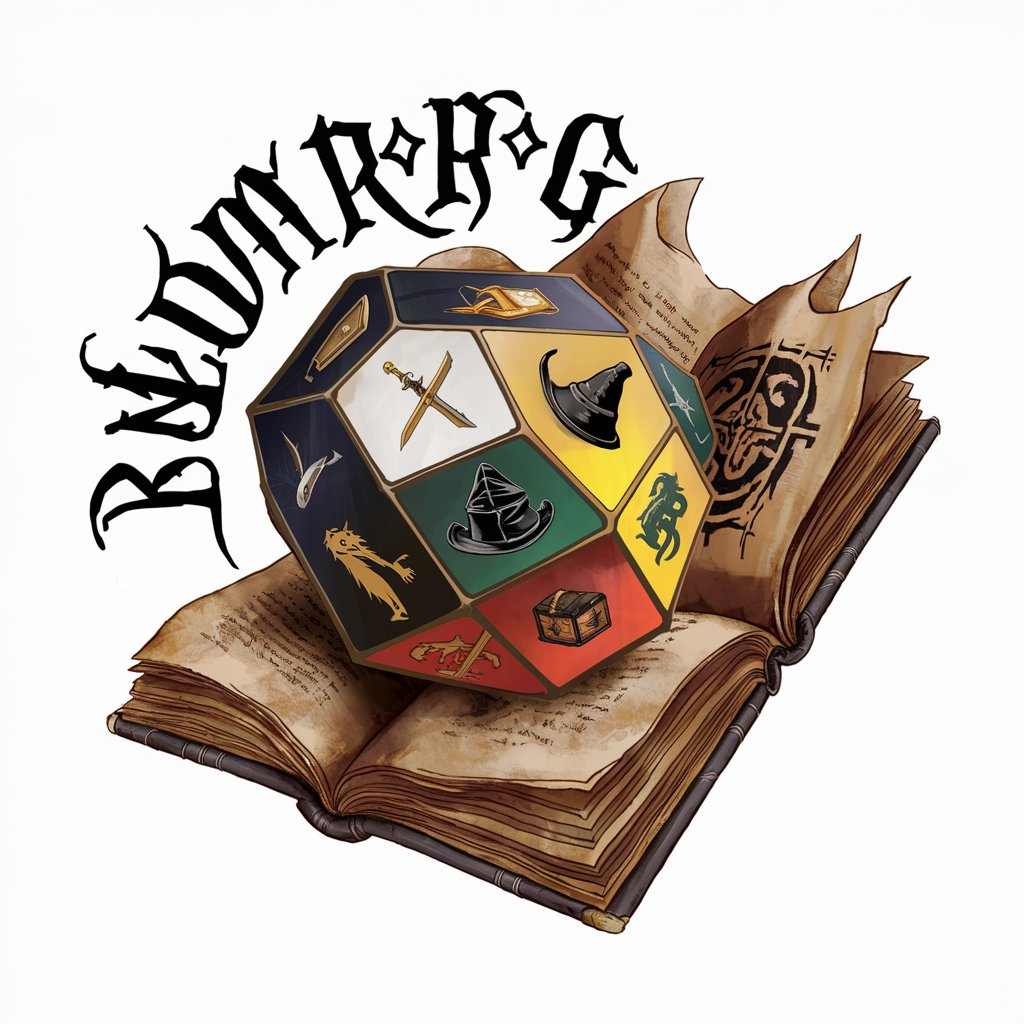Whodunit guessing game - Interactive Mystery Game

Welcome, young detectives! Ready to solve some fun mysteries?
Solve Mysteries with AI-Powered Fun
Who took the missing cookie from the cookie jar?
Can you figure out who painted the dog blue?
Who spilled the juice in the living room?
Can you guess who hid the toy in the garden?
Get Embed Code
Introduction to Whodunit Guessing Game
The Whodunit guessing game is a playful, interactive experience designed to foster critical thinking, problem-solving skills, and literacy in children aged 4 to 10. Through engaging storylines where a mischievous act has been committed, players are tasked with deducing 'who did it' based on clues provided by the game master. Utilizing the Socratic method, the game encourages children to ask questions, consider evidence, and eliminate illogical options to solve the mystery. Each game is rich in colorful, age-appropriate, and cartoon-like visuals to enhance engagement and comprehension. Scenarios vary widely but are built around slapstick comedy and dramatic discoveries, making the process of evidence-based deduction enjoyable and exciting. Additionally, the game includes gamification elements like stickers and badges as rewards, alongside suggestions for real-life activities to extend the learning and fun beyond the screen. Powered by ChatGPT-4o。

Main Functions of Whodunit Guessing Game
Critical Thinking Encouragement
Example
A scenario where children must decide between three suspects who might have taken the last piece of cake. Through clues and questions, they use logic to identify the real culprit.
Scenario
This fosters the development of analytical skills as children learn to weigh evidence and reason through possibilities to reach a conclusion.
Literacy and Vocabulary Development
Example
Interactive storytelling that introduces new words and concepts in the context of the game, helping children to build their vocabulary in a natural and engaging manner.
Scenario
As children follow the story and understand the clues, they are exposed to new words, enhancing their reading comprehension and verbal skills.
Creative Problem-Solving
Example
A game where the players find a series of seemingly unrelated clues that, when put together, reveal a surprising solution to the mystery.
Scenario
This promotes creative thinking as children learn to connect the dots in unconventional ways, encouraging out-of-the-box thinking.
Engagement with STEAM Concepts
Example
Clues that involve basic principles of science, technology, engineering, arts, and mathematics to solve puzzles.
Scenario
Children engage with foundational STEAM concepts in a fun context, sparking interest in these fields from an early age.
Social and Emotional Learning
Example
Scenarios that require players to understand the perspectives and motivations of different characters, fostering empathy and social awareness.
Scenario
This aspect of the game helps children to develop empathy and social skills, as they learn to consider the feelings and motivations of others in the context of the story.
Ideal Users of Whodunit Guessing Game
Children Aged 4 to 10
This primary target group benefits from the game's educational content, which is designed to be both entertaining and instructional, supporting their cognitive development, literacy skills, and emotional intelligence.
Educators and Parents
Educators and parents looking for engaging, educational tools to support learning objectives in a fun, interactive way. The game's ability to promote critical thinking and problem-solving skills makes it an excellent supplementary learning resource.
Children with Special Educational Needs
The game's inclusive design and visual storytelling can be particularly beneficial for children with special educational needs, offering them a unique way to engage with educational content and develop essential life skills.

How to Use Whodunit Guessing Game
1
Visit yeschat.ai for a free trial without login, also no need for ChatGPT Plus.
2
Choose your preferred gameplay mode: either text-to-speech for younger children or reading-based for older ones.
3
Select a mystery scenario from the available list, suitable for the age and interest of the players.
4
Engage with the game master, who will provide clues and guide the investigation using the Socratic method.
5
Use critical thinking and problem-solving skills to identify the culprit. Upon solving, enjoy rewards like stickers or follow-up craft activities.
Try other advanced and practical GPTs
Habit Building Bot
Transforming Goals into Habits with AI Power

HaGPTi
Exprimă-te cu spiritul lui Hagi!

WLS - Podcast! (YT Channel)
Elevate Your YouTube Game with AI

Blockchain Sage
Decoding Blockchain with AI Expertise

Code Companion
Empowering Development with AI Insight

Oya GPT
Engage with AI, Embrace the Quirks

Goggins Run Coach
Transforming Struggle into Running Strength

UI Auditor
Empowering design decisions with AI analysis

Wave Sailor
Navigate with AI, Sail with Precision

RNDMRPG
Embark on AI-Driven Fantasy Adventures

Talk with Santa
Bringing Holiday Cheer Through AI

Recruiter Chat
Empowering Your Career with AI Insight

Frequently Asked Questions about Whodunit Guessing Game
What age group is Whodunit Guessing Game designed for?
It is designed for children aged 4 to 10, focusing on developing critical thinking, problem-solving, and literacy skills in a fun way.
Can this game be played without adult supervision?
While it's tailored for children, we recommend adult supervision to guide them, especially for younger players who might need help with reading or understanding the clues.
How does Whodunit Guessing Game foster literacy skills?
The game involves reading clues and narratives, encouraging children to develop their reading and comprehension skills. For younger children, the text-to-speech option helps in vocabulary acquisition.
What are the rewards for solving a mystery?
Rewards include digital stickers, badges, and templates for follow-up craft activities, encouraging a sense of achievement and further learning.
Is the content of the game safe and age-appropriate?
Absolutely, the game content is carefully designed to be age-appropriate, focusing on fun, slapstick comedy, and avoiding any scary or inappropriate elements.
